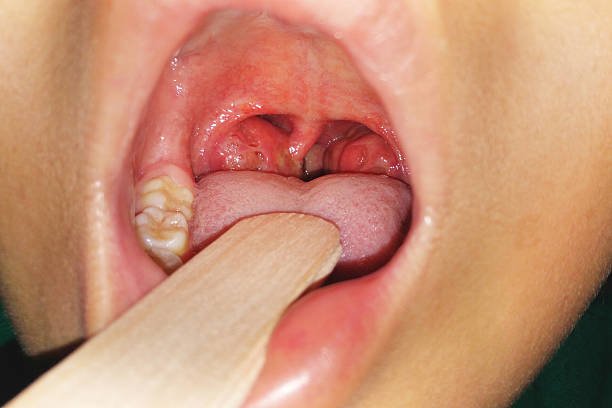When exposed to an infectious agent, the tonsils, a mass of lymphoid tissue located bilaterally in the back of the throat, and the adjacent pharyngeal structures become inflamed, resulting in tonsillitis.
Tonsillitis is classified as an acute infection if it resolves within 10 days; however, if it persists beyond that and recurs more than once a year, it is classified as chronic or recurrent tonsillitis.
You must not wait until the infection turns chronic and get your infection treated as soon as possible to avert potential complications. Book yourself an appointment with an ENT Specialist in Karachi for the best treatment.
Risk Factors
No predilection exists for gender, race, or ethnicity in the distribution of tonsillitis worldwide. With the overwhelming majority of cases emerging between the ages of 4 and 5, it is, nonetheless, incredibly prevalent in children. Because tonsillitis affects children so frequently, being young is a strong risk factor. Children who attend school are more likely to be exposed to the bacterial and viral agents that cause this ailment, which puts them at greater risk of acquiring it.
Presenting Complaints
- Sore throat
- Dysphagia (difficulty swallowing)
- Low appetite
- Scratchy or mumbled speech
- Halitosis (foul breath)
- Low-grade fever associated with chills
- Earache, headache, stomachache, and/or stiff neck
- Swollen lymph nodes
- Increased irritability or excessive drooling is common in young children
Clinical Workup
Taking a pharyngeal swab and sending it for culture after a complete general examination helps to further investigate the cause of the infection. To look for inflammatory markers, a complete blood count should be performed in addition to ESR (erythrocyte sedimentation rate) and CRP (c-reactive protein) that will most likely indicate elevated leucocytes and inflammatory markers during active inflammation.
Treatment
Tonsillitis caused by a viral infection, such as a cold, frequently resolves on its own without the need for medical attention, however, the infection of bacterial origin must be treated using antibiotic medications. Mild cases do not usually require treatment unless they develop into severe ones. The basis of devising a medical regimen is symptomatic therapy:
- Antipyretic drugs (drugs for fever)
- Analgesics (painkillers)
- Intravenous fluids are given to treat the symptoms of dehydration
- Corticosteroids, in severe cases
- Antibiotic therapy, if the bacterial origin
Both adults and children can benefit from using paracetamol and non-steroidal anti-inflammatory drugs (NSAIDs) to treat sore throats. However, there are precautions linked with children under the age of 12 using codeine and aspirin because of potential complications; the latter has been linked to a fatal illness Reye’s syndrome. Also suggested are corticosteroids, preferably in an oral form in severe cases unless the patient cannot chew.
Antibiotic therapy lasts about 7 to 10 days as per the doctor’s prescription. The single most important element for a successful treatment is compliance. To prevent the emergence of antibiotic resistance and side effects in the future, patients must finish the course.
When medical treatment stands ineffective, surgery is advised. It is also recommended for patients who have chronic or recurrent illnesses, manifesting complications like breathing disruption or dysphagia. Tonsillectomy is the medical term for tonsil removal.
However, the course of your disease must only be managed by a doctor. You can always consult an ENT Specialist in Islamabad for some of the best medical advice on your illness.
